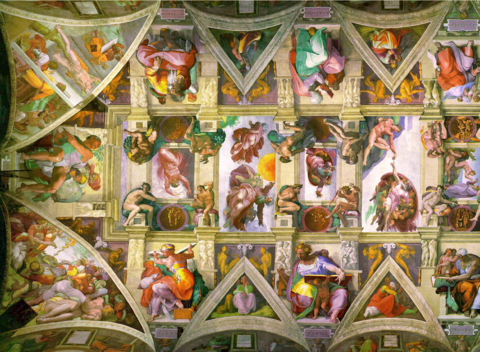Double Fine's Amnesia Fortnight 2014: A New Gaming Renaissance
By thatpinguino 7 Comments
The model for how games are financed and how games are developed are, by and large, inextricably intertwined. For a while now we have been working on a game-as-product model of game creation; whether it was paying a quarter to play an arcade game, or whether it was paying 60$ to buy a console game. In either case the game was a product that was financed by a game publisher or development studio from inception to release for the explicit purpose of being sold to consumers for profit. This is the model that has been the backbone of the industry since its inception. However, I think at this point I am not going out on a limb by saying that there are several viable alternatives. Right now the crowd-funding model, the early access model, the episodic model, and the free-to-play model are all competing with the standard model for gamers’ dollars. However, I think the crowd-funding model is starting to push us to an even more interesting development model, the commission model, and I think that Double Fine is showing us exactly what this model might look like in the near future.

When I say commission model I am talking about a return to the model that created some of the classical art that we appreciate today, paintings like the Sistine Chapel and the Last Supper for example. Under this model a patron provides the artist with an idea for a piece and pays for the creation of that art, rather than purchasing a piece that the artist already invested the time and money to create. I believe that kickstarter is facilitating the return of this Renaissance standby, except in this modern interpretation there are thousands of patrons rather than one wealthy patron. For example, when you contribute to a kickstarter campaign what are you doing if not commissioning the creation of a product that you intend to use or appreciate? Now commissioning a project does not guarantee that you love the final product; it just shows that you are willing to put your money where your mouth is and front the money to create a desired product or piece of art. Double Fine is no stranger to kickstarter and new financial models; they have produced games under every model under the sun. They helped start this crowd-funding gangster shit when they funded Broken Age using kickstarter, and in doing so they essentially asked the patrons of the world: “would you like to see more classic adventure games?” and the patrons opened their wallets and said yes. In the case of Broken Age and Massive Chalice, Double Fine pitched their game ideas and received funding based on those ideas, which is a form of commission. However, their current Amnesia Fortnight humble bundle shows what another commission model for games might look like.

If you don’t know, Double Fine is currently allowing their fans to vote for what game prototypes will be created during their company-wide Amnesia Fortnight , a two week in company game jam during which Double Fine employees split into temporary teams and forget about their usual projects and instead work on small passion projects. In years past the games created in the fortnight were pitched internally by DF employees to DF employees and the projects that found support were created. However, this year fans can name their own price to vote on which games get created during the Amnesia Fortnight. To facilitate this DF has posted a series of game pitches on their humble bundle page, essentially allowing users to pick which games they would like to play, and then the most popular games will be made and released to all of the patrons of the fortnight. This is the most direct deployment of the commission model that I have seen out of an established game development house and it holds a wealth of possibilities. It hints at a future where developers cut publishers out of the picture entirely and ask their patrons to pay for the creation of games that they want, rather than merely paying for the finished product. Furthermore, they can ask what type of games people would like to see, rather than going to kickstarter with one specific idea. I think Double Fine is on the forefront of leveraging their fanbase and turning them into patrons of their unique brand of games. They are tearing down a bunch of the barriers that used to separate developers and consumers and now they are letting us in on the game pitching process. We are getting to choose the sausage, watch it get made, and then eat it too, and it tastes delicious.

7 Comments